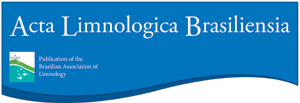Abstract
Aim
The response of mixed cultures and monocultures of Pseudopediastrum boryanum (Turpin) E. Hegewald and Scenedesmus obliquus (Turpin) Kützing was assessed in the laboratory at three different temperatures: 20, 30 and 40 °C. The change in biomass and biochemical composition of these cultures was evaluated.
Methods
Microalgae were placed in a batch culture over 21-days in ASM1 medium. Cell density was directly counted every two days using a Fuchs-Rosenthal hemocytometer. Chlorophyll ‘a’ and total carotenoids were extracted twice. Protein, carbohydrate, total lipid and fatty acid contents were determined at the end of the experiment.
Results
Cultures grown in 40 °C exhibited no growth. However, there was increased cell density (13.6 x 106 cell.mL-1) and biomass (55 g.L-1) in the S. obliquus monoculture at 30 °C. High protein concentrations (672.6 mg.g-1) were observed in monocultures P. boryanum and S. obliquus at 20 °C treatments. There were high carbohydrate concentrations (6.17 mg.g-1) in P. boryanum unialgal at 30 °C. There was no significant difference in total lipid content between S. obliquus (95.5 mg.g-1), P. boryanum (96.3 mg.g-1) and the mixed culture at 20 °C (105.3 mg.g-1). FAMEs varied significantly regarding the number of unsaturated components, which predominantly consisted of fatty acids with two or more unsaturated bonds.
Conclusions
The biomass of the treatments analyzed was rich in proteins and essential fatty acids (such as linolenic acid), yet low in carbohydrate content, suggesting its potential use as a food supplement. Our results indicate that mixed culture of P. boryanum and S. obliquus was inefficient in cultivating biomass or biochemical compounds as compared to the unialgal cultivations. However, algae grown together showed better stability in their biochemical composition in response to changes in temperature, an important factor for microalgae production in open ponds and in food safety measures. These results suggest the consortia among different species of microalgae should be tested to determine better methodologies for the production of biomass and metabolites with greater stability towards environmental factors.
Keywords:
mixed cultivation; Pseudopediastrum; Scenedesmus; biomass; food security
